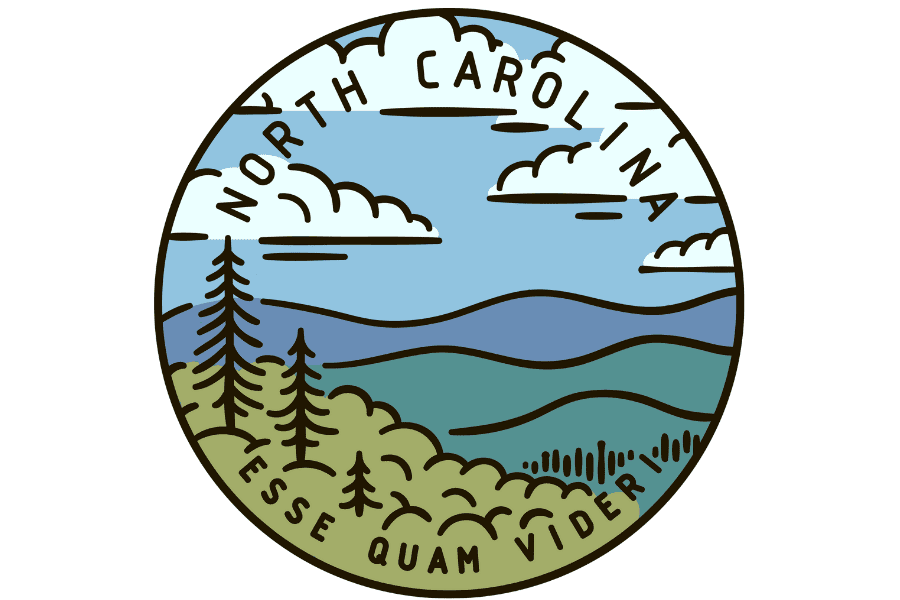Franchising in North Carolina
North Carolina Franchise Law
Is North Carolina A Franchise Registration State?
North Carolina is not a franchise registration state; however, North Carolina is a business opportunity state. As a business opportunity state, the franchisor may, or may not, be required to obtain the states approval to offer franchises in North Carolina. Many franchisors are exempt from this process, because the business opportunity laws carve out an exemption for franchisors with a federally registered trademark. Having a federally registered trademark is essential to any franchisor for many reasons, but one of the key benefits from an operations standpoint is the ability to operate freely in business opportunity states.

Comply with Business opportunity Laws without a trademark
It is easier to offer and sale franchises in North Carolina with the trademark exemption; however, that does not mean its impossible to offer franchises without a trademark. To offer franchises without a trademark, assuming certain limited exemptions do not apply, the franchisor will have to complete an application and pay a business opportunity filing fee. The franchisor will also need to add two state specific addendums to the beginning of its franchise disclosure document.
As of 2023, the following two addendums are required to be included in each FDD.
DISCLOSURES REQUIRED BY
NORTH CAROLINA LAW
The State of North Carolina has not reviewed and does not approve, recommend, endorse or sponsor any business opportunity. The information contained in this disclosure has not been verified by the State. If you have any questions about this investment, see an attorney before you sign a contract or agreement.
45 Day Cancellation Notice
If the seller fails to deliver the product(s), equipment or supplies necessary to begin substantial operation of the business within 45 days of the delivery date stated in your contract, you may notify the seller in writing and demand that the contract be cancelled.
These addendums go in the front of the FDD and are in addition to all federal franchise laws. They supersede any provisions in the franchise agreement or FDD that are contrary to North Carolina’s business opportunity laws.
What Federal Laws Effect Franchises?
Franchise opportunities are regulated on the federal level through the federal Franchise Rule. The rules imposed by federal law apply to all states and provinces in the United States. We provide an overview of federal franchise law. There are a few basic things that anyone considering a franchise, or considering becoming a franchisor, must know.
The offer of a franchise opportunity can only occur through disclosure of a franchise disclosure document (the “FDD”). The requirements for disclosure documents are laid out in the federal franchise rule and cover 23 separate items. The FDD must be provided and receipt must be acknowledge.
The franchise rules require a 14-day waiting period between the prospect receiving the FDD and signing any agreement or exchanging any funds. The rule requires these periods to ensure prospects have sufficient time to evaluate any franchise opportunity.
In addition to the 14-day waiting period, franchisors are required to observe a 7-day waiting period if there are certain changes made to teh franchise agreement. In practice, many franchisors observe this period after producing the final agreement.

How do Franchise Attorneys Help Franchisors and Franchisees?
Franchisor Support
Our franchise attorneys support franchisors nationwide providing reliable and readily accessible legal guidance. We represent franchisors and provide ongoing legal support. We works with small business owners planning to franchise and work with leaders in franchising. Big or small, every client matters and will get the priority and attention they deserve. Prompt and reliable legal advice – on demand.
Franchisor legal services include:
- Developing and implementing a plan to franchise
- Drafting the franchise disclosure document (the “FDD”)
- Drafting the franchise agreement and all franchise contracts
- Securing franchise registration in Virginia and across the U.S.
- Disclosing prospects and sending franchise agreements
- Managing and resolving franchise disputes
- Providing day-to-day franchise legal support
How much does a franchisor lawyer cost?
Once we know a little about your business, we will provide a flat fee to develop the FDD. We often serve existing franchisors on a monthly basis for a fixed monthly rate.
Franchisee Support
Our franchise attorneys understand what matters to franchisors because we work with leading franchisors, franchise sellers, and franchise consultants on a daily basis. We leverage this industry knowledge and experience to help clients who are considering the purchase of a franchise opportunity before they sign a franchise agreement.
Franchisee legal services include:
- Nationwide and Virginia FDD review
- Nationwide and Virginia franchise agreement review
- Comprehensive franchise legal review report
- Consultation and legal advice on rights and obligations
- Consultation and negotiation on business legal terms
- Direct dispute resolution and litigation
- Day-to-day legal support
How much does a franchise lawyer cost?
We provide a comprehensive FDD review and unlimited consultation for a competitive flat fee ($1,850). We can assist on other projects at an agreed fixed cost or our hourly rate.
